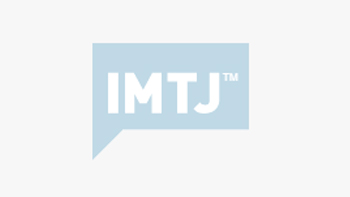Pakistan wants to attract medical tourists, but any attempt to do so is being weakened by revelations that illegal organ transplant tourism is alive and kicking.
Tourism minister Maulana Atta plans to introduce medical tourism in Pakistan by providing low cost state of the art medical facilities to the patients. A simple surgery can be under a tenth of the cost of Europe or the US. Pakistan has highly qualified doctors, the latest medical equipment and hospitals with all necessary arrangements, says the minister.
Pakistan’s earlier entry into medical tourism was mostly based on cheap organ transplant tourism. Although the government outlawed the practice last year, there are disturbing reports that the trade is far from dead. The Transplantation of Human Organs and Tissues Ordinance in 2007 to check the commercialisation of organ transplantation in Pakistan is being flouted with impunity. Some hospitals that were leaders in organ transplant tourism continue to offer their services.
On 23rd June 2009,The Supreme Court expressed concern that sale of human organs for transplantation is continuing despite a law prohibiting it.” It seems the provisions of the ordinance are not adhered to strictly and despite prohibition of the sale of human organs in Pakistan, the trade is going on allegedly in two hospitals, the names of which have been mentioned in a letter sent by the Transplantation Society of Pakistan,” said a three-judge bench. Summoned before the bench, one hospital told the court that it had decided not to carry out any future transplant, but the other made no such commitment. The court became involved when an eminent transplant surgeon who does legal transplants, received emails from fellow transplant surgeons in Saudi Arabia, Kuwait, Bahrain and India disclosing that their patients were still visiting Pakistan to obtain illegal kidney transplants. At a conference in India, his Indian hosts confronted him with a number of patients who had crossed the border to obtain illegal transplants in Lahore.
The death of an Indian who had visited Lahore to sell his kidney and died of complications was widely reported. The BBC broadcast an interview with a Londoner, who had obtained a transplant in Pakistan that cost her £30,000. She was deceived into believing that no violation of the law was involved. The law specifically bans the sale of organs and prohibits organ transplantation from unrelated live donors. In cases where the latter are allowed the conditions stipulated by the ordinance are so stringent that no foreigner on a short visit to Pakistan can ever meet them.
The Transplantation of Human Organs and Tissues Authority (Thota), the agency set up to regulate organ transplantation, was told of four cases of illegal transplantation surgery allegedly done in a Lahore hospital. The recipients came from Saudi Arabia, Kosovo, Turkey and Bulgaria. There are numerous institutions and persons involved in it, not just the hospitals and surgeons carrying out the surgery but visa officers in embassies who facilitate the issuance of visas, and the touts who procure the donors. In April, Thota reported that the number of foreigners being transplanted commercially with organs in Pakistan had dropped to nil from 1500 a year. But with cases of transplant tourism continuing, Thota is not working properly.
The hospital that admitted several illegal operations, and the doctors involved, got no more than a mild telling off, with a promise not to do it again. Such ineffectiveness in controlling the illegal organ trade makes it difficult for Pakistan to be taken seriously as a medical tourism destination. Another problem for Pakistan is perceived hospital quality. Only one hospital has any international accreditation. Aga Khan University Hospitals in Karachi was first accredited by JCI in 2006, is due a re-accreditation survey, concentrates on charity work, and shows little interest in medical tourism.








 ©2024 All rights reserved LaingBuisson
©2024 All rights reserved LaingBuisson 


